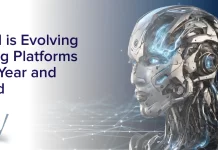
Quantum computing is a disruptive force that has the potential to completely reshape the field of computational technology and push the boundaries of information processing. The art and science of quantum programming, a specialized field that uses the laws of quantum mechanics to unlock computational capabilities previously believed to be unattainable, is at the center of this quantum leap. Discovering the complexities of quantum programming opens up a new world of possibilities beyond the realm of classical computing.
The leap to quantum
Because quantum computing makes use of the special characteristics of quantum bits, or qubits, it differs significantly from classical computing. The ability of qubits to exist in many states concurrently, known as superposition, sets them apart from classical bits, which can only exist in a state of 0 or 1. Quantum computers can process enormous amounts of data in parallel thanks to this capability, which represents a paradigm shift in computing power. This ability is further strengthened by another quantum phenomenon called quantum entanglement, which connects qubits in a way that allows one qubit’s state to instantly affect another’s state regardless of distance.
Quantum Coding: A Revolution in Thinking
The complexities of quantum mechanics are difficult for conventional programming languages, which were created for classical computing, to fully capture. As a specialized field, quantum programming gives programmers the means to create algorithms that can take advantage of the special characteristics of quantum systems.
Design of Quantum Algorithms:
The ability to create algorithms that are specifically designed to take advantage of quantum parallelism is the foundation of quantum programming. For example, Shor’s algorithm demonstrates the quantum advantage by factoring large numbers exponentially faster than classical algorithms—a significant development with wide-ranging effects on the cryptography community.
Utilizing Entanglement and Superposition:
The ability to create algorithms that maximize the use of superposition and entanglement is provided by quantum programming. The fundamental components of quantum circuits, quantum gates, can be deliberately programmed to operate on qubits in ways that classical gates are unable to match. This ability results in the creation of novel approaches to challenging issues in a variety of domains, including materials science and optimization.
Quantum Mistake Reduction:
Errors can occur in quantum systems by design because of defective hardware and external influences. The field of quantum programming goes beyond the development of algorithms to include the development of error-correction strategies that are essential to the scalability and dependability of quantum computers.
Quantum-Classical Hybrid Systems:
The integration of quantum and classical computing is made easier by quantum programming, leading to the creation of hybrid systems that combine the best features of both paradigms. By bridging the gap between the classical and quantum domains, this method allows problems that were previously thought to be unsolvable for classical computers alone to be solved.
Opportunities and Difficulties
Problems like qubit decoherence, error correction, and creating fault-tolerant quantum systems become more pressing as quantum programming progresses. On the other hand, these difficulties offer chances for creativity and learning, propelling the development of quantum programming in the direction of a time when quantum computers are essential to machine learning, optimization, and scientific study.
Decoherence of Qubits:
One major challenge is qubit decoherence, which is the loss of quantum information as a result of interactions with the environment. In an effort to increase the stability of quantum computations, quantum programmers are actively working on methods to prolong qubit coherence times.
Error Reduction:
Quantum computation errors can be caused by a variety of factors, such as external disturbances and hardware flaws. To improve the accuracy of quantum computations, error-mitigation techniques like error-correcting codes and algorithms are developed as part of quantum programming.
Defect-Resilient Quantum Systems:
One of the main goals of quantum programming is to create fault-tolerant quantum systems. Scaling quantum algorithms and achieving the full potential of quantum computing depend on the development of error-resilient quantum computers.
Gazing Forward
To fully realize the promise of quantum computing, cooperation between quantum programming and the ongoing development of quantum hardware is essential. The role of quantum programming will grow as quantum processors get more advanced, pushing the bounds of what was previously thought to be impossible in the realm of classical computing.
There are many obstacles and opportunities on the horizon. Beyond just a paradigm for coding, quantum programming is a revolutionary force that ushers in a new era of computation. The limits of what is possible are reinterpreted, and the quantum frontier is investigated with never-before-seen efficiency and precision.
To sum up, the key to releasing the unmatched processing capacity of quantum computers is quantum programming. Quantum programming is not just a tool; as we stand on the cusp of a quantum revolution, it is a transformative force that ushers in a new era of computation, where the limits of what is possible are redefined and the quantum frontier is explored with never-before-seen accuracy and efficiency.





